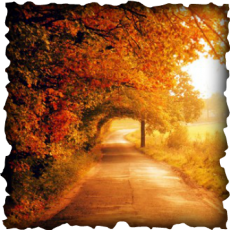
Email: reecejordan98@hotmail.co.uk
Total Article : 168
About Me:18-year-old sixth form student, studying English Literature, History and Government and Politics. My articles will broadly cover topics from the current affairs of politics to reviews of books and albums, as well as adding my own creative pieces, whether it be short fiction or general opinion.

The poems ‘To Autumn’ by John Keats and ‘Lines Written in Early Spring’ by William Wordsworth, display polar opposites within their titular seasons, which are often used as muses for Romantics to explore notions of decay and new life, respectively. Whilst these poems can be seen to reflect these conventional notions, they also, through differing interpretations, can be seen to invert them as well. ‘Autumn’, with its ode form, can be seen as both a celebration and appraisal of the season, as well as a poignant commentary on the gradual young death of Keats. ‘Lines’, whilst displaying the vitality of nature as is typical of spring, explores more the theme of man’s detachment from nature, and whether this relationship can be redeemed or not.
Wordsworth’s portrayal of nature in ‘Lines Written in Early Spring’ shows a conflict between rationale and instinct. The poem is underpinned by a refrain that ponders on ‘what man has made of man’, which can be seen as a distance from the joy of primal being. Upon looking at the nature around him, the speaker notices that there is joy in its simple being: ‘every flower/enjoys the air it breathes’, ‘there was pleasure’ in the twigs ‘[catching] the breezy air’ and the ‘birds [hopping] and [playing]… seemed a thrill of pleasure’. These acts of joy in simple being are contrasted to the writer’s ‘sweet mood’ wherein ‘pleasant thoughts/bring sad thoughts to the mind’ – the rational action of thinking elicits a sadness. Thus it can be argued that Wordsworth seeks to establish a trope of Romantic literature by drawing attention to and ‘[lamenting]’ man’s distance from his natural self. This was perhaps as a response to the increasingly inhumane experiences of the 17th century, wherein the industrial revolution created a society that was eroded of community, and the disillusionment towards the French revolution, which, beginning as a revolutionary change of power, had changed into a barbarous bloodbath. Not only does Wordsworth offer the poignant notion that man has distanced itself from nature, but also highlights our docility in allowing it to happen. This is seen most prominently in the contrast of the passivity of ‘man’ – the speaker – whom ‘sate reclined’ and the activity of nature, illustrated in the active verbs of ‘hopped’ and ‘played’. Thus, Wordsworth suggests that not only has mankind severed its link with nature, but he also emphasises the fact that nothing is being done to try and redeem this relationship. The simplicity of the alternate rhyme within quatrains could also be seen to convey this notion: by using a simple form, the poem itself mimics that of the simple act of being that Wordsworth wishes for.
Rather than dwell on the decay associated with autumn, as was the literary norm in late 17th and early 18th century, Keats, by using the ode form, seeks to convey the ‘music’ of the titular season. Looking at the poem through a formalist lens, the three stanzas appear to show the progression from early to late autumn.
Image Credits: http://romanticlitjohnkeats.weebly.com

0 Comment:
Be the first one to comment on this article.